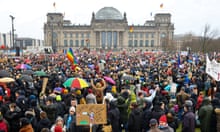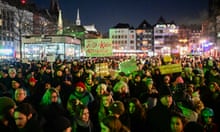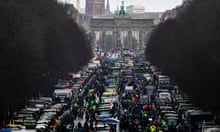The German state is to pay this December’s monthly gas bill for all households and small- to medium-sized businesses, according to a phased two-stage cap on energy prices recommended by a government-appointed expert panel on Monday.
Under the scheme, the one-off full reimbursement in December would be followed up next spring with a more differentiated subsidy scheme designed to cap bills but still incentivise people to save energy.
From March 2023 to the end of April 2024, private households would pay €0.12 (£0.11) per kilowatt hour for the first 80% of last year’s use of gas. Industry, meanwhile, would from 1 January 2023 until end of April 2024 pay €0.07 per kilowatt hour for the first 70% of last year’s use.
The expert panel’s co-chair Dr Veronika Grimm said the subsidised prices would provide a “new normal” that companies and private households could plan with, without artificially returning to the low prices that were common before Russia’s war in Ukraine upended Germany’s energy policy.
“It’s not going to be the case that the price goes back down to 7 cents in the future”, Grimm said. “We won’t receive Russian gas for a long time.”
While exact costs were hard to predict, the proposed two-step scheme could cost about €90bn, said Siegfried Russwurm, a panel member and president of the Federation of German Industries.
It is considered likely that the German chancellor Olaf Scholz’s coalition government will enact the measures recommended by the commission of experts, which is made up of 20 members of industry, unions and academia.
At the end of September, Scholz, a Social Democrat, had announced a €200bn “defensive shield” to protect consumers from rising energy prices, but not explained in further detail how it would work in practice.
after newsletter promotion
The gas price cap represented a U-turn on a previous scheme that meant consumers would from October have been hit with an additional gas levy designed to compensate energy suppliers for the increased import costs.
While the price cap will probably prove less politically toxic than the gas levy, there are fears it could disincentivise consumers from saving gas of their own accord. In spite of rallying cries from the government, gas consumption in the first week of October was up year-on-year.
Scholz’s €200bn support package has also proved controversial among other EU member states, with Poland accusing Germany of “destroying” the EU’s internal market by subsidising its own businesses while opposing a pan-European cap on gas prices.









